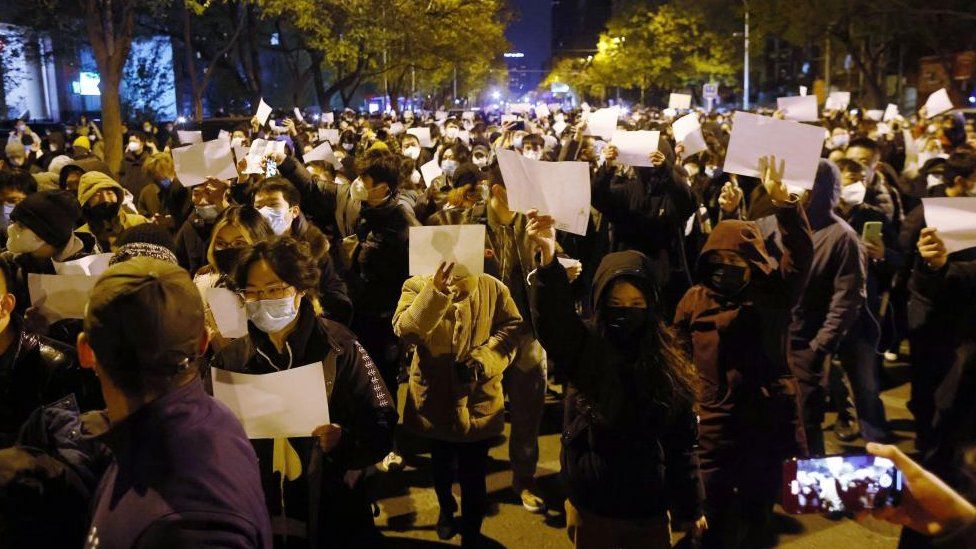The ruling Communist Party’s uncompromising zero-Covid strategy — now in force for about three years — has stoked anger and resentment, with widespread and sometimes violent protests kicking off across China’s major cities.
Pandemic fatigue has been on the rise for some time, as a recent lightening of virus curbs has coincided with record infection tallies, prompting a patchwork of onerous restrictions in multiple major cities.
China is the last major economy wedded to a zero-Covid strategy, but maintaining relatively low numbers of cases and deaths has constrained its economic recovery, disrupted supply chains and hammered employment.
– ‘I have no choice’ –
Demand for deliveries has soared under the tightening curbs as millions of housebound urbanites have turned to an army of low-paid couriers — mostly migrants from other provinces — to supply takeaway lunches and grocery orders.
But this time the restrictions have crept deep into places where drivers live, shutting many inside without pay and forcing others to choose between having a place to sleep and earning enough money to survive.
– Sleeping rough –
When a shutdown loomed over Gu Qiang’s housing compound last week, the Meituan driver chose to sleep in his car.
“Spending 30 yuan to keep the engine running all night is still cheaper than getting a hotel,” the gruff northeast China native said.
“Some of my friends are living outside — they dare not go home.”
Several couriers interviewed by AFP described heavier workloads in recent weeks as lockdowns have left their companies short of labour.
While some said they were happy to take on money-spinning extra orders, most said they had endured longer working hours, extra stress and more negative interactions with customers.
They also said they had not received any additional support from Meituan or the companies to which delivery services have been outsourced.
Authorities last year launched an investigation into food delivery platforms following claims of exploitative labour practices including algorithms that effectively forced couriers to drive dangerously to meet tight delivery times.
Meituan did not respond to an AFP request for comment prior to publication.
But the company told the state-run China Daily newspaper last week that it had paid for hotel rooms for some stranded workers and welcomed calls for help from couriers in similar situations.








